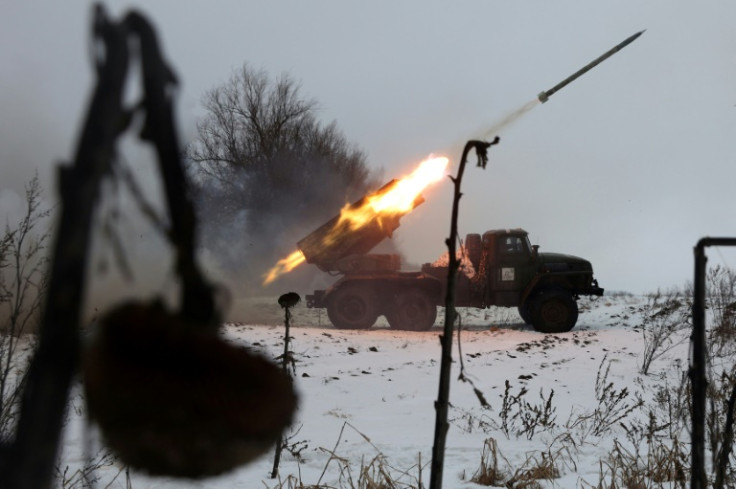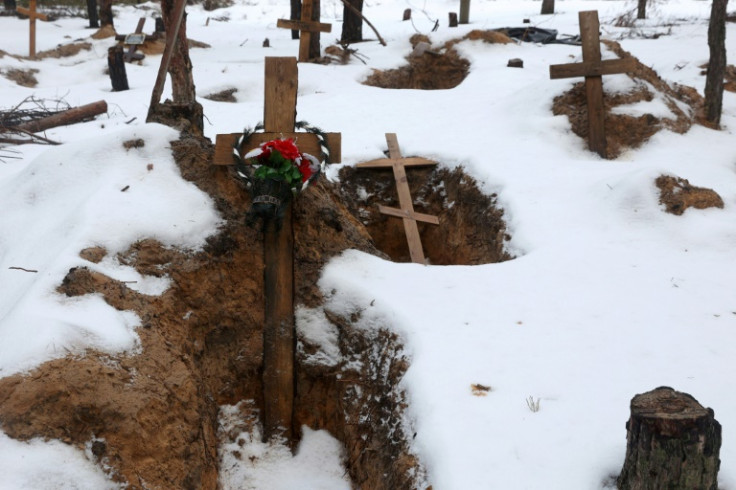Macron to visit China after Beijing's Ukraine peace plan
China has sought to position itself as a neutral party on the conflict, even as it has maintained close ties with Russia.

French President Emmanuel Macron said Saturday he would visit China in April, and urged Beijing to pressure Russia to end the war in Ukraine.
China has sought to position itself as a neutral party on the conflict, even as it has maintained close ties with Russia and helped scuttle a joint statement condemning the war at a G20 gathering in India.
It published a 12-point position paper on Friday that called for urgent peace talks and a "political settlement" to end the conflict.
Ukrainian President Volodymyr Zelensky on Friday also expressed hopes to meet Chinese counterpart Xi Jinping, calling it "important for world security".
Macron said Saturday he would visit China in "early April" and urged Beijing to help "put pressure" on Russia to end the war.
"The fact that China is engaging in peace efforts is a good thing," Macron said on the sidelines of an agricultural show in Paris, in reference to the position paper.
Peace was only possible if "Russian aggression was halted, troops withdrawn, and the territorial sovereignty of Ukraine and its people was respected", he added.
Earlier on Saturday, the Chinese foreign ministry said Belarusian leader Alexander Lukashenko would pay a state visit from February 28 to March 2 at Xi's invitation.
A long-time ally of Russian President Vladimir Putin, Lukashenko allowed his country to be used as a launchpad for Moscow's invasion of its pro-Western ally on February 24 last year.
Kyiv has expressed concerns that Belarus could again support Moscow in its war effort, with the countries announcing the creation of a joint regional force last October.
Chinese foreign minister Qin Gang told his Belarusian counterpart Sergei Aleinik that Beijing was willing to work with Minsk to deepen mutual political trust during a phone conversation on Friday, China's ministry said in a statement.
China would also continue to support Belarus in maintaining national stability and oppose attempts by "external forces" to interfere in its internal affairs or impose "illegal" unilateral sanctions on Minsk, Qin told Aleinik.

The diplomatic rift between Beijing, Moscow and the West was exposed on Saturday as G20 finance ministers failed to adopt a joint statement on the global economy after China sought to water down references to the Ukraine war.
Russia said the United States, the European Union and the G7 "destabilised" the talks in India by trying to impose their "diktat".
The Chinese position paper urged all parties to "support Russia and Ukraine in working in the same direction and resuming direct dialogue as quickly as possible".
It also made clear its opposition to the use and threat of deploying nuclear weapons, after Putin threatened to use Moscow's atomic arsenal in the conflict.
Some of Ukraine's allies have expressed scepticism at China's commitment to brokering peace, nodding to Beijing's close ties to Moscow. China has denied a claim by US Secretary of State Antony Blinken that it was "considering providing lethal support" to Russia.
Macron urged China "not to supply any arms to Russia" and sought Beijing's help to "exert pressure on Russia to ensure it never uses chemical or nuclear weapons and it stops this aggression prior to negotiations".
Zelensky did not specify when or where talks with Xi would happen, but expressed hope Friday that China would support a "just peace" in Ukraine and that Beijing would not supply weapons to Russia.
On Sunday, the deputy chief of Ukrainian military intelligence told a German newspaper group that a fresh push to retake seized territory was planned for spring, adding Kyiv's forces would "not stop until we get our country back to its 1991 borders".
"One of our strategic military objectives is to try to drive a wedge into the Russian front in the south -- between Crimea and Russian territory," Vadym Skibitsky said.
Beyond that, "the objective of our counter-offensive is to liberate all the occupied territories of Ukraine, including Crimea".
Skibitsky also raised the possibility of future Ukrainian strikes on "arms depots or military equipment on Russian territory, for example around the city of Belgorod, from where attacks on Ukraine are launched".
Yevgeny Prigozhin claimed the capture of Yagidne, a short distance from central Bakhmut, which has become a key political and symbolic prize in the battle to control the eastern Donbas region.
© Copyright AFP 2025. All rights reserved.





















